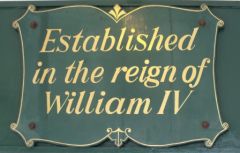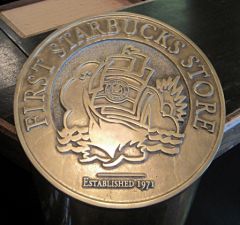Among the cultural dimensions laid out by Geert Hofstede, there is one that is based on time and our relationship to it. He calles it "Long term orientation". The idea behind this is that culture shapes the way we relate to time, or rather, that our behaviour inscribes itself in a frame that also has a relationship to time.
There is a pretty standard exercise you can do when trying to help people get the grip on cultural differences, which consists of asking them to give a value to fuzzy propositions and see how they come up with different answers. For time, it could be something like this:
- He came late to the meeting
People then have to say whether "late" means 5 minutes, 15 minutes or an hour, or whatever length of time "late" means to them. In a German/French crowd, you'll probably have much longer delays among the French than among the Germans (a stigmata of the legendary German punctuality). A French may answer (well, at least I would) at least 20 minutes, while for a German, 5 minutes is already very late. Just to show,

I keep noticing how companies, great or small, tend to tell how long they've been around. How many times have you crossed a truck that said proudly "Company & Sons, Established 1985". I must say that every time I see this, and the date is a date which I have memories from (I would say my first "public" memory is 1981, when Mitterrand was elected president of France), I feel that boasting about it is a bit over the top. "I mean, seriously, you make pipes and electrical ware since 1985, who cares?" But then I actually make the calculation and realize that well, that's about 30 years. Pretty good, actually.
Of course, you have the "really old" ones. Our very own baker in Königstein "Haus der Qualität seit 1750" (House of quality since 1750) displays an experience dating back 260 years, quite an achievement indeed. In Europe in general, you'll see lots of businesses displaying proudly their ancient experience. Hotels, Cafés and restaurants are specialists of the genre.
 While surfing a few days back, however, it came to me that internet has introduced a very interesting and new relationship to time. The internet (or the web, if we want to be precise) has existed for the general public for no more than 15 years. Which makes the whole frame of reference rather awkward. I stumbled upon a few blogs in the past few days which made a case of how long they had been around. 2003, 1999, 2000. In relative time, ie. in my lifespan's frame, this is rather young, not to say it's almost just yesterday. And yet, in the web's lifespan, this is like... ancient.
While surfing a few days back, however, it came to me that internet has introduced a very interesting and new relationship to time. The internet (or the web, if we want to be precise) has existed for the general public for no more than 15 years. Which makes the whole frame of reference rather awkward. I stumbled upon a few blogs in the past few days which made a case of how long they had been around. 2003, 1999, 2000. In relative time, ie. in my lifespan's frame, this is rather young, not to say it's almost just yesterday. And yet, in the web's lifespan, this is like... ancient.
What I find interesting, is how my own relationship to time changes depending on the context. I'd be impressed with a website that's been around for 10 years and is still successful, but not so with a Café that can only boast of a 10 year long experience. Not to mention that I feel very young, so any business boasting "Around since 1971" would be construed as bragging in my mind's eye (yeah, you, Starbucks!). Come on, I'm not "that" old, that you'd want to tell the world you've been around for that long!
What about you? Do you also feel this stretch in time depending on what you're looking at?
Image sources:
- Heaphys Quality Menswear - Established in the reign of William IV - © Elliott Brown - CC-BY
- Established 1971 - © Kim Navarre - CC-BY-SA
- Image with blog exerpts from: Stephanie Booth's website, Steve Ivy's website Monkinetic, Robert Basic's blog.


